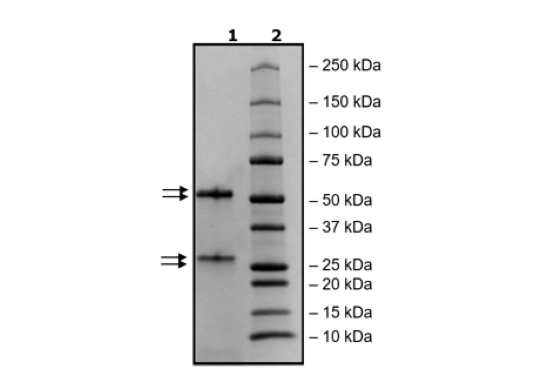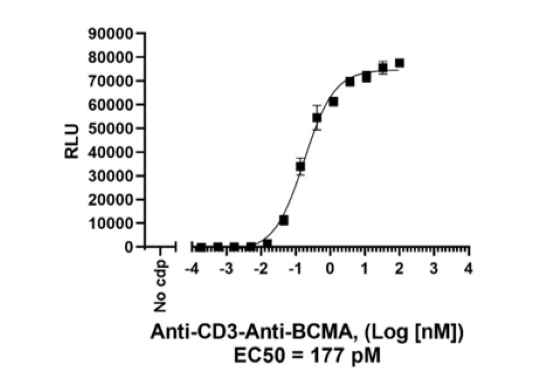Anti-BCMA-Anti-CD3 IgG Bispecific Antibody
Anti-BCMA-Anti-CD3 IgG format bispecific antibody is a purified recombinant human bispecific antibody with T cell Engager. This bispecific antibody has been tested in a functional reporter assay using NFAT Luciferase Reporter Jurkat Cell Line (BPS Bioscience #60621) in the presence of BCMA CHO Recombinant Cell Line (BPS Bioscience #79500-H) that overexpress BCMA.
≥90%
Aqueous buffer solution
8 mM phosphate, pH 7.4, 110 mM NaCl, and 2.2 mM KCl
B-cell maturation antigen (BCMA), also known as CD269 or tumor necrosis factor receptor superfamily member 17 (TNFRSF17), is a cell surface receptor of the TNF receptor superfamily that recognizes B-cell activating factor (BAFF). It is found in mature B lymphocytes, and its cleaved form (sBCMA) is found at elevated levels in patients with multiple myeloma (MM). It has also been implicated in leukemia and lymphoma. BCMA is an attractive target for CAR-T based cancer therapy due to its pattern of expression, and studies have resulted in two clinical trials using CAR-T based therapy products (ALL-715 and JNJ-4528) being approved for the treatment of MM. Additionally, BCMA has been extensively used in the context of bis-specific antibodies that bring together cancer cells and T cells. Just recently a new BCMA based bispecific antibody, Elrexfio), has been approved for the treatment of patients with refractory MM that had four prior lines of therapy. Further developments and studies into BCMA will open more cancer therapy avenues.



